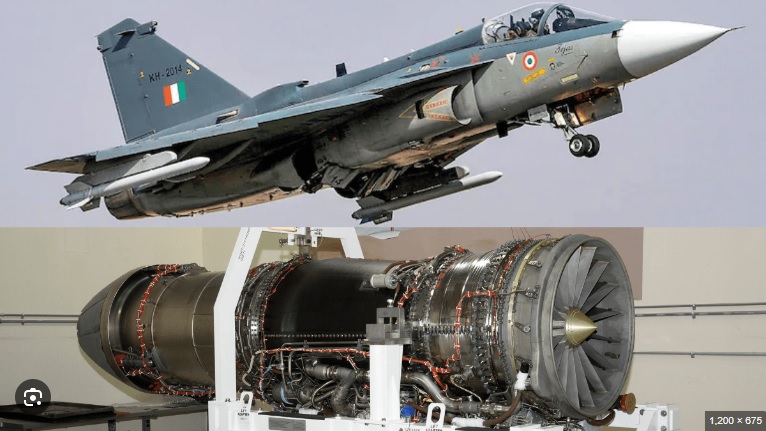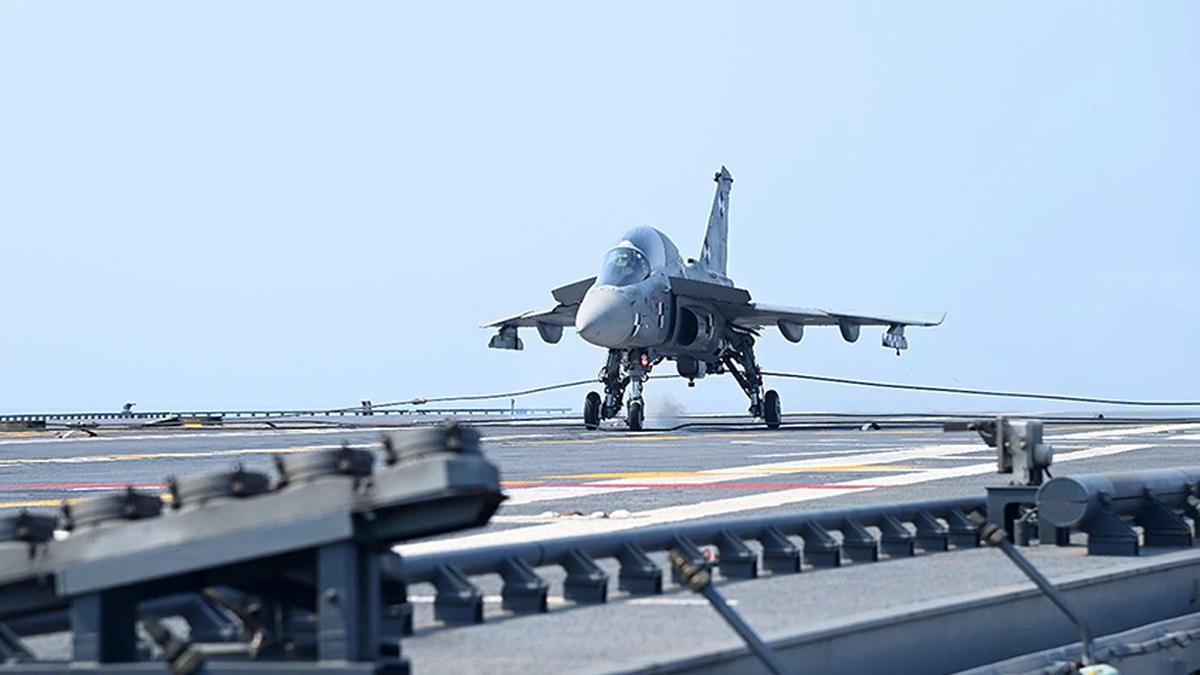
GE Delays F-404 Engines, India Enforces Penalty
The much-anticipated F-404 engines, produced by General Electric (GE) for India’s indigenous Light Combat Aircraft (LCA) Mk1A, face continued delivery delays. Initially contracted for delivery in 2023, these engines are now projected for arrival by March or April 2025, marking a two-year delay from the original schedule.
As a result, India has invoked the penalty clause stipulated in its agreement with GE. With geopolitical and logistical considerations at hand, the delay sheds light on the complexities involved in large-scale military manufacturing partnerships.
Background of the F-404 Engine Deal
In August 2021, India’s Defence Ministry, through Hindustan Aeronautics Limited (HAL), signed a contract with General Electric for 99 F-404-IN20 engines valued at $716 million. This contract follows a significant defence deal in February 2021, whereby India agreed to purchase 83 LCA Mk1A jets from HAL for approximately ₹48,000 crore.
The F-404 engines are essential to power the LCA Mk1A, an enhanced version of the Tejas fighter jet, which promises improved combat capabilities. However, the delays in engine delivery pose challenges to India’s LCA production timeline and overall military preparedness.

Delay in Delivery: A Logistical Hurdle
Despite speculations of political involvement, sources confirm the F-404 engine delay is primarily a logistical issue. The aerospace industry, particularly GE, faces unprecedented supply chain disruptions affecting material availability, production schedules, and overall logistics.
“The GE issue is purely logistical, with no political motivations. We are tying up supply chains to resume production,” remarked a source familiar with the matter.
According to insiders, two engines are available and will be supplied to India shortly, enabling the delivery of two LCA Mk1A jets to the Indian Air Force (IAF) as an interim solution until the remaining engines arrive.
Implications of the Delays on India’s LCA Programme
The delays impact India’s planned deliveries of the LCA Mk1A. As per the agreement, HAL was to provide the IAF with three aircraft by February 2024, followed by an annual production of 16 jets over the next five years. Without timely engine deliveries, HAL’s production schedule could be affected, delaying the integration of the LCA Mk1A fleet within the IAF’s operational framework.
To address this issue, HAL has reportedly considered using Category-2 engines, or pre-owned engines, as a temporary measure until GE completes the delivery of new units. This interim solution, though not ideal, helps HAL avoid production bottlenecks, preventing a complete stall in the LCA programme.
Contractual Penalty Clause Invoked by India
Recognising the impact of delayed deliveries, India has invoked the penalty clause in its contract with GE—a common feature of high-value defence agreements—to ensure accountability. The penalty clause activates when delays or deviations from the contract terms occur. This contractual stipulation signifies India’s firm stance on holding vendors accountable, ensuring that key defence projects stay on track despite logistical challenges.
High-Level Discussions on F-404 Engine Delays
The delay in F-404 engine deliveries has prompted discussions at the highest levels of defence and security. During meetings between the National Security Advisers of India and the United States and subsequent talks with India’s Defence Minister Rajnath Singh, the issue was raised as a point of concern. These dialogues underscore the importance of timely engine delivery in supporting India’s broader strategic objectives and strengthening defense cooperation between India and the U.S.
A GE Aerospace spokesperson commented, “The aerospace industry faces ongoing supply chain constraints. GE Aerospace is actively collaborating with HAL and suppliers to resolve these issues and deliver F-404-IN20 engines for the LCA Mk1A programme.”
The Role of Security of Supply Arrangement (SoSA)
The Security of Supply Arrangement (SoSA) between India and the U.S. supports defence trade and cooperation. It aims to make supply chains more reliable for key defence projects, like LCA Mk1A. The agreement helps reduce risks linked to logistical delays and shortages. It provides a framework for ensuring stable access to essential defence materials. The agreement is particularly important for projects involving advanced and sensitive defence technologies.
Potential Solutions and Mitigation Strategies
To minimise the impact of delays on the LCA programme, HAL is exploring the temporary use of pre-owned engines. HAL’s proactive approach demonstrates a commitment to meeting delivery targets while awaiting new engine units. Furthermore, SoSA could play a crucial role in alleviating future supply chain disruptions, ensuring smoother operations in India’s defence manufacturing sector.
Additionally, HAL and GE could consider setting up a localised supply chain that includes parts and subcomponents manufactured domestically. This approach could not only reduce dependence on international suppliers but also streamline production and delivery processes for future defence projects.

Future Engine Prospects: Expansion of India’s LCA Fleet
The Indian Defence Ministry has approved buying 97 more LCA Mk1A aircraft, in addition to the current 83. This will bring the total LCA Mk1A fleet to 180 aircraft. The move highlights India’s push to strengthen air combat capabilities with homegrown technology.
The 180 Mk1A units are expected to cost around ₹1.15 lakh crore. This is a major investment towards India’s defence self-reliance goals. The LCA Mk1A has advanced avionics, modern radar, and supports various weapon systems.
It is a crucial part of India’s air defence strategy. Achieving this vision requires solving current logistical challenges. Timely delivery of vital parts, such as the F-404 engines, is essential.
Conclusion
Delays in delivering F-404 engines for LCA Mk1A highlight the challenges of global defence manufacturing partnerships. Despite these issues, India and GE remain committed to finding solutions. India’s decision to invoke a penalty clause highlights the need for accountability in major defence projects.
HAL and GE aim to ensure timely deliveries despite current setbacks. HAL is using pre-owned engines to keep production on schedule. This approach helps avoid significant delays in the LCA Mk1A programme.
A new Security of Supply Arrangement boosts India-U.S. cooperation on supply reliability. It also reduces the risk of similar disruptions in the future. The LCA Mk1A’s success is vital for India’s defence, self-reliance, and global manufacturing ambitions.
References
- The Hindu – “General Electric F-404 Engine Delivery Delays: India Enforces Penalty Clause.”
- ANI – “Light Combat Aircraft (LCA) Tejas on aircraft carrier INS Vikrant.”
- The Ministry of Defence, India, has released official reports about the LCA Mk1A project and the HAL contracts.
- GE Aerospace—“Official Statements on Supply Chain Constraints in the Aerospace Industry.”
- [Note: For more information on the ongoing LCA Mk1A programme, see official updates on the Ministry of Defence’s website.]







